Related Research Articles

The Balfour Declaration was a public statement issued by the British government in 1917 during the First World War announcing its support for the establishment of a "national home for the Jewish people" in Palestine, then an Ottoman region with a small minority Jewish population. The declaration was contained in a letter dated 2 November 1917 from the United Kingdom's Foreign Secretary Arthur Balfour to Lord Rothschild, a leader of the British Jewish community, for transmission to the Zionist Federation of Great Britain and Ireland. The text of the declaration was published in the press on 9 November 1917.
The McMahon–Hussein Correspondence is a series of letters that were exchanged during World War I in which the Government of the United Kingdom agreed to recognize Arab independence in a large region after the war in exchange for the Sharif of Mecca launching the Arab Revolt against the Ottoman Empire. The correspondence had a significant influence on Middle Eastern history during and after the war; a dispute over Palestine continued thereafter.
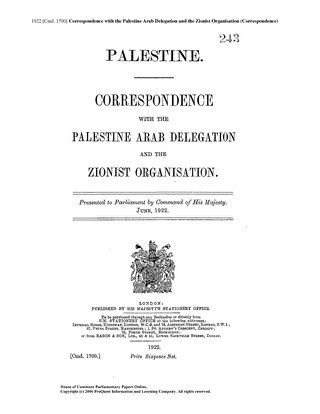
The Churchill White Paper of 3 June 1922 was drafted at the request of Winston Churchill, then Secretary of State for the Colonies, partly in response to the 1921 Jaffa Riots. The official name of the document was Palestine: Correspondence with the Palestine Arab Delegation and the Zionist Organisation. The white paper was made up of nine documents and "Churchill's memorandum" was an enclosure to document number 5. While maintaining Britain's commitment to the Balfour Declaration and its promise of a Jewish national home in Mandatory Palestine, the paper emphasized that the establishment of a national home would not impose a Jewish nationality on the Arab inhabitants of Palestine. To reduce tensions between the Arabs and Jews in Palestine the paper called for a limitation of Jewish immigration to the economic capacity of the country to absorb new arrivals. This limitation was considered a great setback to many in the Zionist movement, though it acknowledged that the Jews should be able to increase their numbers through immigration rather than sufferance.

Yishuv, Ha-Yishuv, or Ha-Yishuv Ha-Ivri denote the body of Jewish residents in Palestine prior to the establishment of the State of Israel in 1948. The term came into use in the 1880s, when there were about 25,000 Jews living in that region, and continued to be used until 1948, by which time there were some 630,000 Jews there. The term is still in use to denote the pre-1948 Jewish residents in Palestine, corresponding to the southern part of Ottoman Syria until 1918, OETA South in 1917–1920, and Mandatory Palestine in 1920–1948.

The Peel Commission, formally known as the Palestine Royal Commission, was a British Royal Commission of Inquiry, headed by Lord Peel, appointed in 1936 to investigate the causes of unrest in Mandatory Palestine, which was administered by Great Britain, following a six-month-long Arab general strike.

The White Paper of 1939 was a policy paper issued by the British government, led by Neville Chamberlain, in response to the 1936–1939 Arab revolt in Palestine. After its formal approval in the House of Commons on 23 May 1939, it acted as the governing policy for Mandatory Palestine from 1939 to the 1948 British departure. After the war, the Mandate was referred to the United Nations.
The Woodhead Commission was a British technical commission established to propose "a detailed" partition scheme for Mandatory Palestine, including recommending the partition boundaries and examination of economic and financial aspects of the Peel Plan.
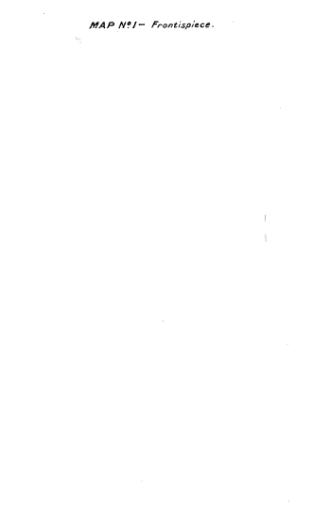
The Shaw Report, officially the Report of the Commission on the Palestine Disturbances of August 1929, commonly known as the Shaw Commission, was the result of a British commission of inquiry, led by Sir Walter Shaw, established to investigate the violent rioting in Palestine in late August 1929. The commission's report was issued in March 1930 and led to the establishment of the Hope Simpson Enquiry in May 1930. It concluded that the cause of the rioting was based in Arab fears of continual Jewish immigration and land purchases, particularly resonating from a growing Arab landless class. This was later reiterated in the Hope Simpson Enquiry and subsequent Passfield white paper, both which called for limited Jewish immigration to Palestine.
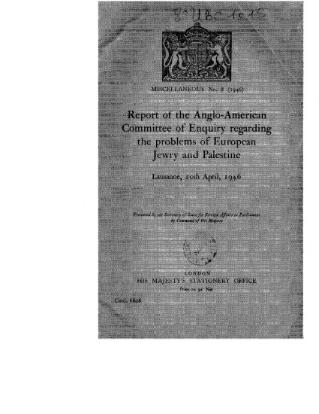
The Anglo-American Committee of Inquiry was a joint British and American committee assembled in Washington, D.C., on 4 January 1946. The committee was tasked to examine political, economic and social conditions in Mandatory Palestine and the well-being of the peoples now living there; to consult representatives of Arabs and Jews, and to make other recommendations 'as may be necessary' to for ad interim handling of these problems as well as for their permanent solution. The report, entitled "Report of the Anglo-American Committee of Enquiry Regarding the Problems of European Jewry and Palestine", was published in Lausanne on 20 April 1946.
The Passfield White Paper, issued October 20, 1930, by colonial secretary Lord Passfield, was a formal statement of British policy in Palestine, which previously had been set by the Churchill White Paper of 1922. The new statement resulted from the Hope-Simpson Commission's investigation into the deeper causes of the 1929 Palestine riots, that initially started over access to the Western Wall. The white paper limited official Jewish immigration to a much greater degree.
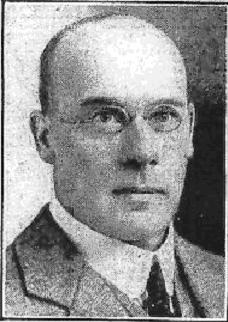
The Report on Immigration, Land Settlement and Development, commonly referred to as the Hope Simpson Enquiry or the Hope Simpson Report, was a British Commission managed by Sir John Hope Simpson, established during August 1929 to address Immigration, Land Settlement and Development issues in British Mandate of Palestine, as recommended by the Shaw Commission, after the widespread 1929 Palestine riots.
The Palestinian people are an Arabic-speaking people with family origins in the region of Palestine. Since 1964, they have been referred to as Palestinians, but before that they were usually referred to as Palestinian Arabs. During the period of the British Mandate, the term Palestinian was also used to describe the Jewish community living in Palestine. The Arabic-language newspaper Falastin (Palestine) was founded in 1911 by Palestinian Christians.
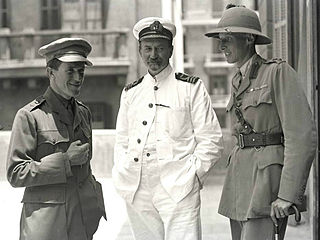
The Hogarth Message was a January 1918 message from Commander David Hogarth, head of the Arab Bureau in Cairo, to Hussein bin Ali, Sharif of Mecca, following Hussein's request for an explanation of the Balfour Declaration.
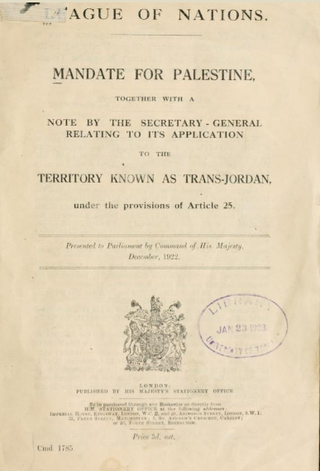
The Mandate for Palestine was a League of Nations mandate for British administration of the territories of Palestine and Transjordan, both of which had been conceded by the Ottoman Empire following the end of World War I in 1918. The mandate was assigned to Britain by the San Remo conference in April 1920, after France's concession in the 1918 Clemenceau–Lloyd George Agreement of the previously-agreed "international administration" of Palestine under the Sykes–Picot Agreement. Transjordan was added to the mandate after the Arab Kingdom in Damascus was toppled by the French in the Franco-Syrian War. Civil administration began in Palestine and Transjordan in July 1920 and April 1921, respectively, and the mandate was in force from 29 September 1923 to 15 May 1948 and to 25 May 1946 respectively.

The London Conference (1939), or St James's Palace Conference, which took place between 7 February-17 March 1939, was called by the British Government to plan the future governance of Palestine and an end of the Mandate. It opened on 7 February 1939 in St James's Palace after which the Colonial Secretary, Malcolm MacDonald held a series of separate meetings with an Arab and a Jewish delegation, because the Arab delegation refused to sit in the same room as the Jewish delegation. When MacDonald first announced the proposed conference he made clear that if no agreement was reached the government would impose a solution. The process came to an end after five and a half weeks with the British announcing proposals which were later published as the 1939 White Paper.

Mandatory Palestine was a geopolitical entity established between 1920 and 1948 in the region of Palestine under the terms of the League of Nations Mandate for Palestine.

The Arab Higher Committee or the Higher National Committee was the central political organ of the Arab Palestinians in Mandatory Palestine. It was established on 25 April 1936, on the initiative of Haj Amin al-Husayni, the Grand Mufti of Jerusalem, and comprised the leaders of Palestinian Arab clans and political parties under the mufti's chairmanship. The committee was outlawed by the British Mandatory administration in September 1937 after the assassination of a British official.
This is a timeline of intercommunal conflict in Mandatory Palestine.
The MacDonald Letter of 13 February 1931, also known as the Black Letter, was a letter from British prime minister Ramsay MacDonald to Chaim Weizmann, prominent Zionist leader, in response to the Passfield White Paper. The White Paper limited Jewish immigration to Palestine and Jewish purchase of Arab land. Zionist organizations worldwide mounted a vigorous campaign against the document, which culminated in MacDonald's "clarification" of the White Paper, reaffirming British support for the continuation of Jewish immigration and land purchase in Palestine. It was considered a withdrawal of the Passfield White Paper, despite the fact that Prime Minister said in parliament on 11 February 1931 that he was "very unwilling to give the letter the same status as the dominating document" i.e. the Passfield White Paper. The letter itself also claimed the importance of justice for "non-Jewish sections of the community".

The end of the British Mandate for Palestine was formally made by way of the Palestine bill of 29 April 1948. A public statement prepared by the Colonial and Foreign offices confirmed termination of British responsibility for the administration of Palestine from midnight on 14 May 1948.
References
- Geddes, Charles L. (1991). A Documentary History of the Arab-Israeli Conflict. Greenwood Publishing Group. ISBN 978-0-275-93858-1.
- Shlaim, Avi (2005). "The Balfour Declaration And its Consequences". Yet More Adventures with Britannia: Personalities, Politics and Culture in Britain. I. B. Tauris. ISBN 978-1-84511-082-6.
- Palestine Royal Commission Report (PDF). His Majesty's Stationery Office. July 1937.